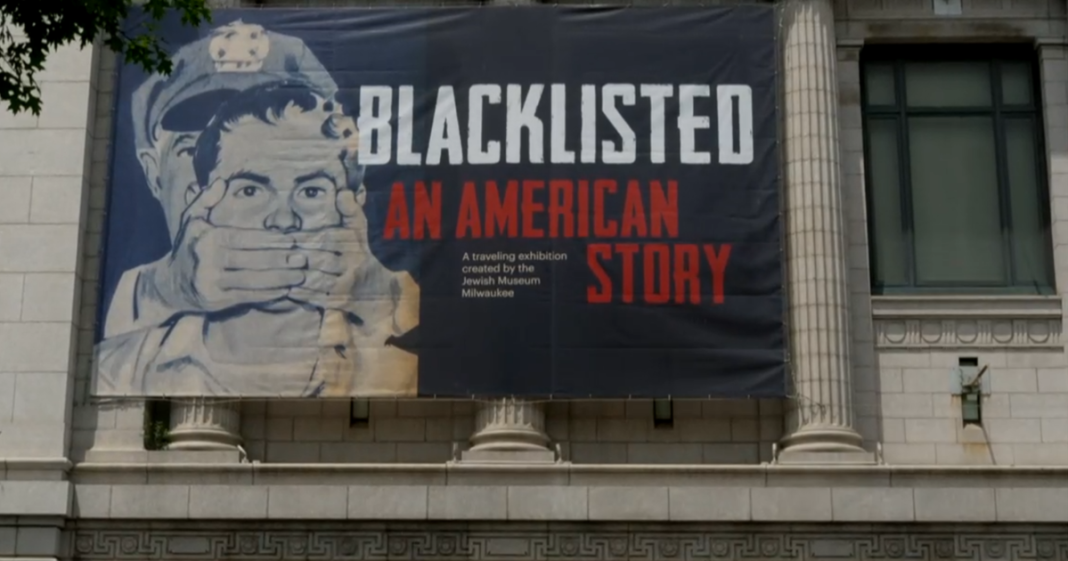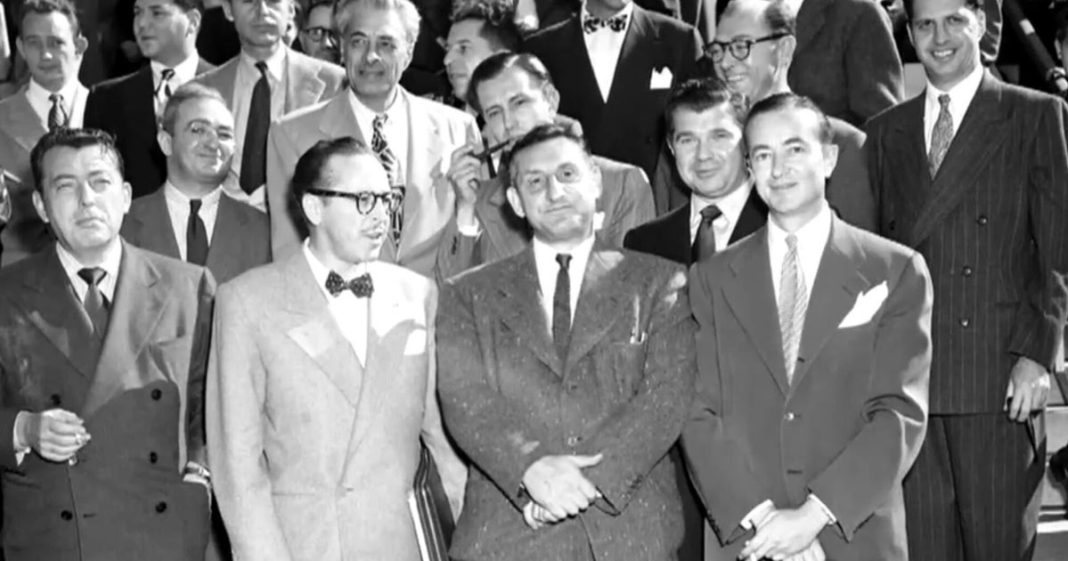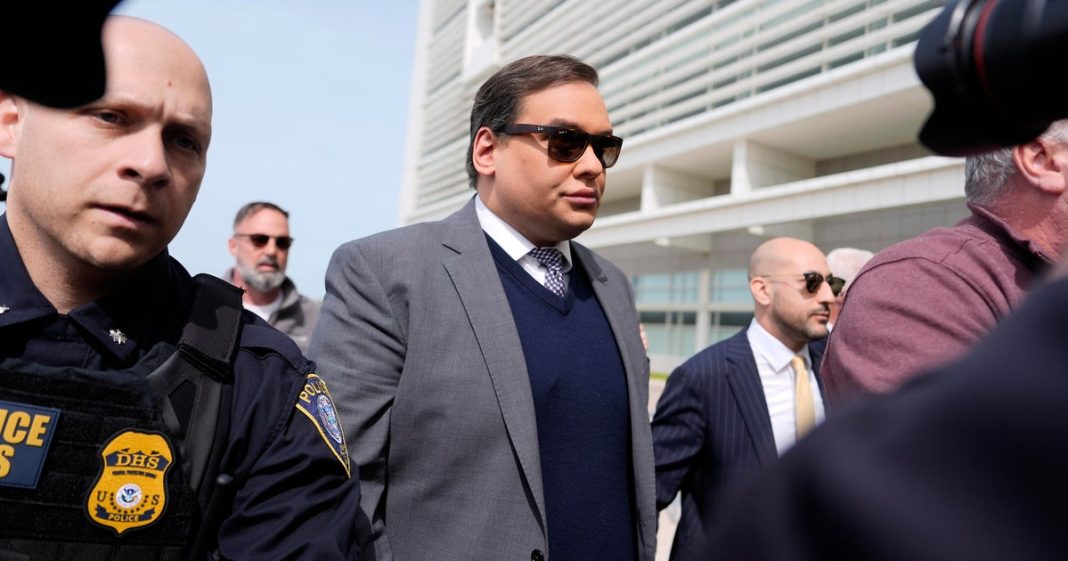New York — The central question in 1947, as the House Un-American Activities Committee investigated alleged Communist influence in Hollywood, was: “Are you a member of the Communist Party?”
Chaired by Republican Rep. John Parnell Thomas of New Jersey, the committee eventually led to a Hollywood blacklist, now the focus of a new exhibit at the New York Historical Society.
“The exhibit really tells the story of the Hollywood Ten,” Louise Mirrer, president of the New York Historical Society, told CBS News, of a group of 10 Hollywood writers and directors. “And the charge was for the Hollywood Ten, that they were making movies that espoused the Communist point of view.”
The Hollywood Ten refused to answer the committee’s questions. They were held in contempt of Congress, each sentenced from anywhere between six months to a year in prison, and blacklisted by studio executives.
“I think it had an enormous effect,” Anne Lessy, assistant curator of history exhibitions for the historical society, told CBS News of the impact of the blacklist. “If you wanted to be a part of the film industry, you essentially forfeited your privacy and your right to your own political ideas and affiliations.”
Screenwriter Dalton Trumbo, one of the Hollywood Ten, spent 10 months in prison. His daughter, Mitzi, was 5 years old at the time. Her drawings and letters to him are on display in the exhibit, as well as testimony from those who named suspected Communists.
“In an effort to save themselves, their careers and their reputations, many, you know, creatives felt compelled to name names, which is what the committee wanted,” Lessy said.
Even Walt Disney famously testified before the committee.
“Walt Disney very much objected to labor organizing that had taken place in his studios and blamed it on Communist infiltration,” Lessy said. “And then you also have Ronald Reagan, who at the time, was president of the Screen Actors Guild. While he didn’t name names in public, he did to the committee’s investigator. And he went on to very much endorse the anti-Communist crusade.”
The blacklist later expanded to include classically trained pianist Hazel Scott, the first Black entertainer to have a nationally syndicated TV show. But the show was canceled after she was named in an anti-Communist pamphlet.
Once out of prison, Trumbo used pseudonyms to write the Academy Award-winning films “The Brave One” and “Roman Holiday.”
“So it took about four decades…for the Academy Awards to finally recognize Dalton Trumbo,” Lessy said. “And…that was seen as the beginning of eroding of the committee’s power.”
The impact of the Red Scare also extended beyond Hollywood.
“A number of regular Americans got caught up in this anti-Communist fervor, members of labor unions, high school teachers,” Lessy said. “College professors also came under scrutiny. There was a well-known publication called Red Channels that would provide very detailed information on a wide range of creatives. And so even just your name appearing in one of these publications was enough to get you blacklisted.”
By the 1960s, as the Red Scare had faded, so too did the blacklist’s power. And in 1975, the House Un-American Activities Committee was abolished.
“I think it [the Hollywood blacklist] raises important questions about how to protect a robust democracy,” Lessy said. “How do we protect our rights and freedoms, particularly freedom of speech…If you hold unpopular views, should you be punished? Should you lose your job? These are all questions we should be wrestling with.”




